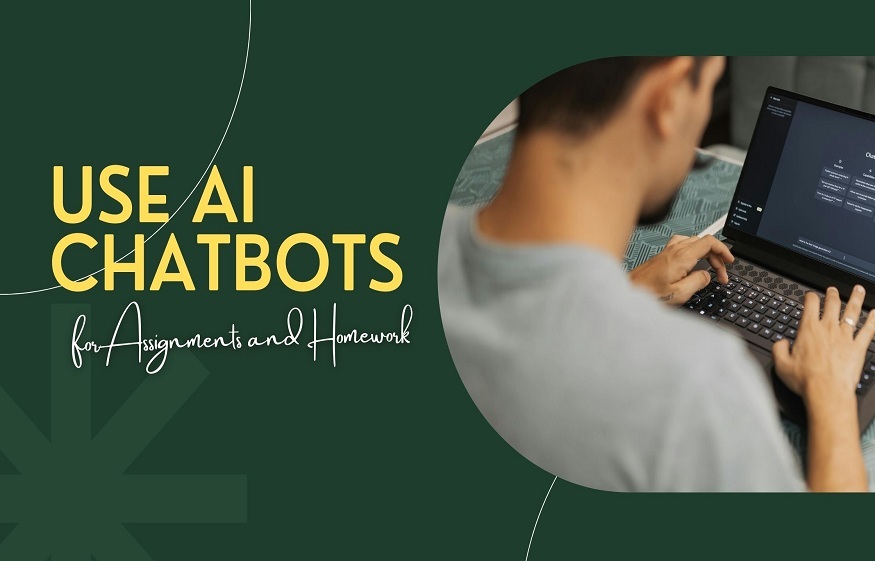One topic that frequently comes up in today’s digitally first educational environment is whether students use AI tools responsibly or if they are just searching for short cuts, such as “should I pay someone to do my homework instead of trying to learn with AI?” This worry reflects how artificial intelligence chatbots have evolved into effective study aids in contemporary education. They solve mathematical calculations, come up with ideas, explain things, and even help with writing tasks. The true question, however, is how well students are utilizing these resources for their own development and academic success.
Artificial Intelligence Chatbots’ Rise in the Classroom
Pupils can now obtain immediate, well-organized answers rather than wasting hours looking through books or browsing online discussion boards. AI is now a digital tutor available around-the-clock due to the simplicity of requesting questions and getting concise, detailed answers.
AI is now viewed as a useful tool that pupils use on every single day in schools and colleges rather than as a futuristic idea. Chatbots offer instant assistance that conventional instruction occasionally is unable to offer, from troubleshooting programming codes to explaining biology ideas.
How AI Chatbots Are Used by Students for Homework
Students can employ a variety of AI variants to do their homework tasks. While some function as paid amenities, others are openly available and free.
Among the most popular categories of AI tools are:
- Chatbots: By using openly available web data, creative chatbots may provide detailed responses and subject highlights in response to queries users enter into dialogues in a matter of minutes.
- Writing assistants: AI-powered writing assistants are made to support human writers with editing, proofreading, and improving their work. They can spot problems like phrases that continue, repetition, and misspellings.
- Image generation: AI art-generation programs build intricate pictures, artwork, and motifs from preexisting photos using sophisticated algorithms.
- AI tutors: AI tutoring applications function by giving comprehensive guidance and problems to solve, answering queries, evaluating students’ learning progress, and delivering remarks and comments.
- Fast Explanations: Dissecting intricate theories in fields like as economics, mathematics, and physics.
- Language learning:it is the process of studying vocabulary, grammar, and sentence structure.
- Coding support:Writing sample code, debugging, or comprehending algorithms are examples of coding support.
When properly utilized, these tools not only minimize time but also improve learning by simplifying complex ideas.
What are the potential benefits of using AI chatbots for homework
-
Immediate Academic Assistance
In contrast to traditional tutors, AI is accessible around-the-clock. Students who are stressed about their final exams or homework due dates can count on prompt support.
-
Tailored Education
AI chatbots adjust to the questions posed by users. A student who needs help with history could get an organized essay framework, while a student who is having trouble with arithmetic could receive systematic solutions.
-
Increasing Output
AI frees up students’ time to concentrate on applying and practicing by cutting down on the amount of time they spend looking for solutions.
-
Developing Confidence
Students are less afraid to raise questions when using AI than when they are in a classroom setting where they fear being judged. These increases studying comfort.
-
Could Be an Addition to Research Tools
You should never rely solely on AI, although it might assist you in grasping the fundamentals of general concepts. Asking AI to shed light on material or present a subject in a novel way might be beneficial for students, much like a Google search.
-
Can Increase Productivity
If machine learning is implemented correctly, it can teach students how to develop more effective ways to learn. For example, AI might help students develop study schedules, pick up new memory tricks, and clarify concepts.
. Learners can use AI to create experimental solutions, for instance, and then improve them using their own knowledge. In a similar vein, educators can include AI chatbots into their classes, transforming them from rivals to interactive resources.
When faced with challenging material, students frequently turn to online assignment help. Mixing AI assistance with genuine tutors rather than relying exclusively on outside servicesguarantees improved understanding and long-lasting learning results. Students can get greater comprehension levels by asking AI to explain things and then having experts confirm them.
What are the Drawbacks of AI Assignments
-
May Promote Plagiarism or Cheating
Regretfully, certain pupils will fix problems or compose articles using AI instead of submitting their own unique work. It can be enticing to reach out to AI to complete your schoolwork, particularly if you have a short turnaround time. \
However, attempting to pass off content produced by AI as your own is never allowed and is regarded as piracy. AI shouldn’t ever be employed to complete your assignments; instead, it should only be utilized (if at all) to enhance your studies and provide context.
-
Could Decrease Involvement of Students
An excessive dependence on AI could negatively impact the inspiration of learners. People may be prevented from delving thoroughly into a subject and coming to their own original conclusions if AI is used to produce ideas and viewpoints.
-
Could Offer False Information
AI is not always precise. Indeed, there are numerous instances of AI chatbots giving inaccurate, deceptive, or insufficient responses. Due of its reliance on pre-existing web content, AI is susceptible to inaccuracy and disinformation repetition. To ensure accuracy, you should always look for reliable sources when employing AI for historical investigation.
-
It could hinder students’ acquisition of useful skills
One of the primary advantages of homework is that it promotes self-directed learning, which has several educational advantages. Being proactive and taking on challenging tasks on your own can help you develop critical abilities.
Even while AI has many advantages, using it excessively can be detrimental. Students can start avoiding reasoning and doing their own research. Some people might just mimic AI-generated solutions rather than developing methods for solving issues.
The question of whether pupils are actually learning or are they inadvertently exporting their educational experience is brought up by this. Students might be tempted to ask, why not use AI to learn instead of paying someone to do assignment at this point.
How to Use AI Chatbots Wisely for Homework or Assignment work
In order for students to utilize AI properly, they must mix education with supervision. The following are some tactics:
- Use AI to Clarify: Not Provide Direct Responses Instead than only answering inquiries, ask AI to describe steps.
- Double- Check Details: Use reputable educational materials or manuals to confirm AI-generated responses.
- Practice on Your Own: Try resolving online homeworkissues on your own after receiving AI coaching.
- Use AI as a Discussion Partner: While AI might offer ideas for articles and tasks, learners should still compose their final versions on their own.
Use AI learning in conjunction with comments from teachers or tutors to look for human guidance.
How Does AI Help with Skill Development?
When applied properly, AI can improve future-ready skills:
- Students that practice reasoning skills are able to evaluate AI responses rather than accepting them at face value.
- AI lectures can help learners improve their troubleshooting techniques.
- Being able to communicate with AI efficiently is turning into a crucial ability in today’s workforce.
- AI generates novel project ideas by offering new creative and innovative views.
What Roles Will AI Chatbots Play in Education?
AI will keep developing, becoming progressively more precise, individualized, and engaging. In the future, chatbots may offer real-time tests, modify learning courses according to student achievement, and interface with actual educational systems.
However, making sure pupils utilize AI sensibly and responsibly will always be a struggle. Colleges might make AI literacy courses required in order to teach students how to tell the difference between using and abusing these technologies.
In conclusion
How intelligently are kids use AI chatbots for assignments and homework, then? Their strategy determines the response. Students gain improved comprehension, productivity, and skill development when they see AI as a helpful mentor. However, people who rely on technology for quick cuts run the risk of losing out on authentic education.
The question, “Should I pay someone to do my homework instead of learning with AI?” may occasionally come up. The long-term advantages of knowledge obtained through supervised AI use cannot be replaced by outsourcing, even though it can offer temporary respite.
At last, students ought to combine AI with conventional study techniques, instructor direction, and autonomous study. By doing this, pupils not only do their assignments quickly but also comprehend the subjects more thoroughly.

